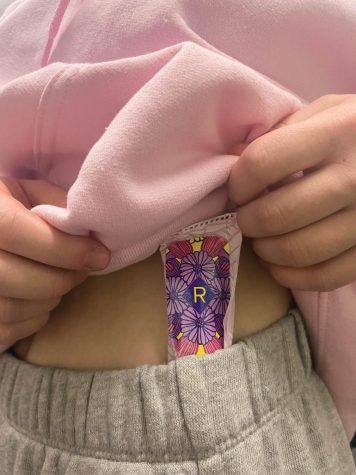Politics Vs. Friendships: which one takes precedent?
November 5, 2021
Fires. Riots. Hurricanes. The nation’s capitol stormed. Rising poverty and unemployment levels. A global pandemic.
These are only a few of the many issues that the teens of 2021 have on their minds as they begin to develop their own opinions on the politics that run our country.
But sometimes those beliefs begin to develop in the opposite direction of that of their peers, and students are left to navigate ways in which to maintain those relationships.
“I always love listening and hearing what someone’s perspective is,” senior Kirstyn Dickey said. “Because sometimes it’s just perspective and it’s all about what they’ve learned and what I’ve learned, versus, maybe they’re more educated on this subject than I am, or they’re affected by that more.”
Nevertheless, talking through political conflicts is only an option for some specific topics, Dickey said.
“When it boils down to basic human rights where someone is literally struggling in the dirt, and you see them struggling and then decide to turn a blind eye,” Dickey said. “That’s when I’m like, okay, let’s take a step back here and reevaluate this friendship.”
But that stage of reevaluation can sometimes end in a broken relationship according to Dickey.
“I just have a hard time being friends with people who look at me and are like, ‘Oh yeah, that person doesn’t deserve rights,’” Dickey said.
Although, there are more ways to maintain a friendship while having differing views, senior Gracie Mainoo said.
“If you wanna believe something, it’s okay, whatever,” Mainoo said. “If I believe something else, it’s okay. We just agree to disagree at the end of the day.”
That’s not to say that students aren’t influenced by any of their peers.
“I’ve probably had more of an effect on my two best friends by making them care more,” Dickey said. “Not necessarily changing their opinions, but making them more aware.”
Despite friends’ influence, the choice to agree with or disagree with a view can’t truly come from another, Mainoo said.
“My goal, as a Christian, is just to witness,” Mainoo said. “And then that decision, if you want to believe what I believe, is between yourself and if you want to actively go and change your views.”
As a product of this, politics will have different levels of importance within each and every relationship, and may or may not be talked about often.
“If something gets brought up that day, or a new law is made, or something like that, I try to have conversations with my friends so that they stay aware,” Dickey said.
The struggle to balance politics and relationships may have become more relevant in the wake of recent events, according to AP Government and Politics and AP Macroeconomics teacher Jeff Beck.
“The 2016 election was kind of a cleavage point where people discovered things about each other by reading online posts that they didn’t always know about each other,” Beck said. “It could’ve been a cousin, a family member, or even their own parents that they didn’t realize how extreme the other’s point of views might have been.”
Even then, the likelihood of students losing friends to political differences is low, Beck said.
“So much of people’s identity is tied to things including their politics, so most friends have similar views on things anyway,” Beck said. “That’s kind of how they became friends in many cases.”
Ultimately, each friendship has its own unique situation and every person may have a preference on what matters most to them: their political beliefs, the friendships they have, and whether they can make both coexist.
“In the end, we all have a different set of eyes,” Dickey said. “We all see the world in a different perspective, with different issues, and different circumstances. So, the impact that each of us can make on each other is what draws me to politics.”
